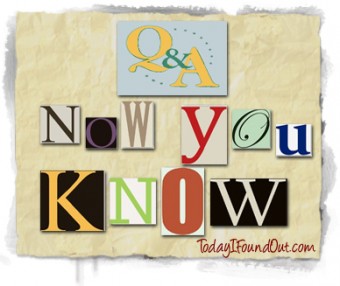Where Does the Word Robot Come From?
 The word robot was coined by artist Josef Čapek, the brother of famed Czechoslovakian author Karel Čapek. Karel Čapek was, among other things, a science fiction author before there was something officially known as science fiction, in subject matter along the same vein as George Orwell. He introduced the word in a play called R.U.R. The full title translating into English as Rossum’s Universal Robots, which debuted in January of 1921.
The word robot was coined by artist Josef Čapek, the brother of famed Czechoslovakian author Karel Čapek. Karel Čapek was, among other things, a science fiction author before there was something officially known as science fiction, in subject matter along the same vein as George Orwell. He introduced the word in a play called R.U.R. The full title translating into English as Rossum’s Universal Robots, which debuted in January of 1921.
While writing this play, he struggled to come up with a word to name the robots, initially settling on ‘laboři’, from the Latin ‘labor’. He discussed this with his brother, Josef, and Josef suggested ‘roboti’, which gave rise to the English ‘robot’. ‘Roboti’ derives from the Old Church Slavanic ‘rabota’, meaning ‘servitude’, which in turn comes from ‘rabu’, meaning ‘slave’.
The robots in R.U.R. were not mechanical, as we think of robots today; they actually weren’t all that different from humans themselves. They were biological beings created to do work for humans, more or less indistinguishable from humans in appearance and even with full cognitive abilities. Eventually the robots become ubiquitous, taking over pretty much every job for mankind. At a certain point, they get tired of doing all the work for the lazy humans who contribute nothing to the world and whose population is dwindling from forgetting how to reproduce, so decide to kill everyone off, which they do, excepting one human who “still works with his hands”, so he is spared.
Just before they finish killing all the humans, the makers of the robots destroy the formula for creating new robots. The robots then task the remaining single human with coming up with the formula using whatever means necessary (even killing robots to dissect them). He fails, but two of the robots end up falling in love and we’re left with the impression that they’ll reproduce together and become the foundation for a new civilization.
The robots in this story then more resemble what we now would call ‘androids’. If you’re curious, the first documented mention of the word ‘android’ is in the 18th century Ephraim Chambers’ Cyclopaedia, “Albertus Magnus is recorded as having made a famous androides”. Android derives from the Greek ὰνδρο (andro-), meaning ‘man’, and the suffix -ειδῄς (-eides), meaning “form, likeness, appearance, or resemblance”; hence the definition of android being “automaton resembling a human being”.
The android reference in the Cyclopaedia supposedly (with emphasis on ‘supposedly’) made by German philosopher Albertus Magnus was an artificial being he made using the “angels from the netherworld” and the powers of the philosopher’s stone that he created from the “metals and material unknown to this world…” The project was said to have taken him 30 years to achieve and when he completed the android his student, St. Thomas, supposedly destroyed the “diabolic being” and denounced it as a “tool of Satan and blasphemy to God”.
The famed aphesis of the word android, ‘droid’, was coined by none other than George Lucas and first appeared in Star Wars: A New Hope. Lucas recently managed to hastily trademark the word before Verizon was able to do so, thus Verizon now has to pay Lucas for the use of the word with their Droid line of phones. You can read more about this here: The Word Droid is a Registered Trademark of Lucasfilm Ltd.
If you liked this article, you might also be interested in this one: The First Known Robot was Created Around 400-350 BC by the Mathematician Archytas and was a Steam Powered Pigeon.
Expand for References| Share the Knowledge! |
|





Hello,
I would like to comment slightly misleading information in this article. You are saying, that the czech version is “roboti”, which gave rise to the English ‘robot ’. “Roboti” is only a plural version of the word “robot”, so the word ROBOT was completely and successfully accepted in English and lots of other languages as it was. (Only the plural version in Czech and English differentiates according to their grammars; roboti=robots).
Another thing is, that the word is coming from the word “robota”, which is older czech word for “work” or more accurately “corvée” – a day’s unpaid labor owed by a vassal to his feudal landlord – which was common thing in our countries until 18th century. So, it was not exactly about slaves as you took it from russian word “rabu”, but more like taxation nowadays. (Feudal system was maybe close enough to slavery, but still not the same thing).
Anyway the main thought is, that robots can do the hard work for men as well as the vassals did for their landlords.
“Jismal” in arabic “جِسْمال” mean “Autobody” or “Robot”
and its consisting of two parts , “Jism” which mean “Body” & “Al” which mean “Auto”
i think it’s better than robot
Interesting… Capek’s robots are more like the replicants in Blade Runner, then?